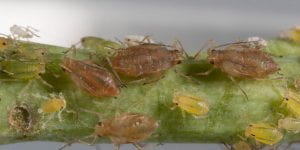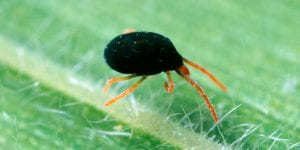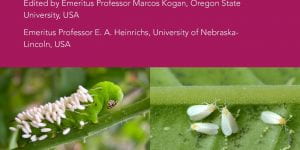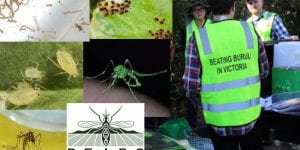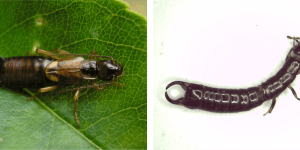Tag: pests
-
The resistance advantage – a field genetic background is important for survival of our Wolbachia mosquitoes in Malaysia and reduction of dengue
Banner image: Nancy with scientists from the Wolbachia dengue program at the Institute for Medical Research, Ministry of Health, Kuala Lumpur, Malaysia. Words and photos: Nancy M. Endersby-Harshman Our paper published two weeks ago in Insects is the result of a research collaboration between PEARG at the University of Melbourne, the Institute for Medical Research […] -
Targeting the bacteria inside insects for improved pest management
This article was first published on Pursuit. Read the original article Francesca Noakes and Professor Ary Hoffmann Any home gardener knows of the long-running battle against insect pests. The little critters that sneak into your garden beds and strip leaves are irritating among prized kale, but for farmers these tiny pests can have devastating economic […] -
New Pursuit article – Have resistance, will travel
This article was first published on Pursuit. Read the original article here. Authors: Dr Nancy Endersby-Harshman, Dr Qiong Yang, Dr Tom Schmidt and Professor Ary Hoffmann Around the world, pest insects – like mosquitoes – often become resistant to the insecticides meant to control them, causing problems for agriculture and public health. Resistance in multiple populations […]blogs.unimelb.edu.au/pearg/2020/05/28/new-pursuit-article-have-resistance-will-travel
-
Looking for a funded PhD or MPhil scholarship?
The Australian Grains Pest Innovation Program (AGPIP) is offering 4 fully funded scholarships at the University of Melbourne for potential PhD or MPhil students interested in cutting-edge science, environmental sustainability and agricultural innovation. AGPIP is a collaboration between the PEARG and cesar. The program is aimed at improving the sustainability of invertebrate pest management practices […]blogs.unimelb.edu.au/pearg/2020/04/06/looking-for-a-phd-or-mphil-scholarship
-
New publication: Ecological impacts of pesticides and their mitigation within IPM systems
Pest control is recognised as an important part of crop production. Against a background of increasing concern for chemical impacts on the environment, Integrated Pest Management programs have been developed where chemical application and natural enemy enhancement work together to maintain productivity with reduced environmental impact. Such programs require good science, general theory and strong […] -
With great power comes great responsibility…
Words: Samantha Ward Images: Words: Samantha Ward & Marianne Coquilleau Flying the flag for the PEARG lab! [Photo credit: Marianne Coquilleau] I am a scientist. A taxonomist, to be more specific. Taxonomy is the study of naming, defining, and categorising organisms. There’s a job for that?! Actually, we still have no idea how many species […]blogs.unimelb.edu.au/pearg/2019/12/19/with-great-power-comes-great-responsibility
-
Sampling by the sea – collecting mosquitoes in the Mornington Peninsula
Words and images: Véronique Paris It’s 7.30 Saturday morning – what are your plans for the day? While you may be still in bed contemplating a coffee, or still sound asleep, I’m packing the PEARG ute with a stack of small buckets, strips of red felt, some rabbit food, and a 20lt jerrycan of water. […] -
MSc projects 2020 – Students wanted
We are seeking motivated MSc students to apply for several projects starting next year. Enquiries via pearg-queries@unimelb.edu.au Project 1/4: Exploring bacterial symbionts for agricultural pest control PEARG is researching ways to control important agricultural pests such as aphids and mites that cause millions of dollars in damage to crops each year in Australia. This project […]blogs.unimelb.edu.au/pearg/2019/06/14/msc-projects-2020-students-wanted
-
Stowaway mozzies enter Australia from Asian holiday spots – and they’re resistant to insecticides
Original article published on The Conversation Words: Tom Schmidt, Andrew Weeks, and Ary Hoffmann We might not be able to use common insecticides to kill mosquitoes that arrive from other countries. from www.shutterstock.com Planning a trip to the tropics? You might end up bringing home more than just a tan and a towel. Our latest […] -
New open access paper: Morphological and molecular analysis of Australian earwigs (Dermaptera) points to unique species and regional endemism in the Anisolabididae family
Words and images: Oliver Stuart Link to open access paper Earwigs (Dermaptera) are a challenging group of insects to study. In Australia, earwigs are variously known as pests, predators of pests (so, beneficial insects), or both at once depending on the crop type and other particulars. The invasive Forficula auricularia (the European earwig) is the […]
Number of posts found: 28

